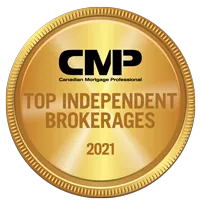Debt Consolidation Mortgage
Lower Your Interest Rates: Pay off high-interest debts with a single affordable mortgage.
Improve Cash Flow: Reduce monthly payments to ease financial stress.
Boost Your Credit Score: Simplify debt management and improve your credit.
Build on Your Equity: Pay down your debt & mortgage faster with fewer payments

Discover the best mortgage rates and lowest mortgage rates in Canada at RateShop. Compare Canada mortgage lending rates from top lenders to secure your ideal home loan deal today.

Debt Consolidation Mortgage: A Smart Solution to Manage Your Debt
Turn Multiple Debts into One Manageable Payment – Your Path to Financial Freedom Starts Here!
Are you juggling credit card bills, personal loans, and other debts? A debt consolidation mortgage could be the solution you’ve been searching for. By combining your debts into one low-interest payment, you can save money, reduce stress, and take control of your finances. Let’s explore how it works, the pros and cons, and how to get the best deal in Canada.
What Is a Debt Consolidation Mortgage? Your Path to Financial Freedom
A debt consolidation mortgage allows you to roll high-interest debts (like credit cards or personal loans) into your mortgage. Here’s why it’s a game-changer:
Lower Interest Rates: Mortgage rates are typically much lower than credit card rates.
One Easy Payment: Say goodbye to multiple due dates and hello to simplicity.
Improved Cash Flow: Free up money for savings, investments, or life’s little luxuries.
The Good, the Bad, and the Ugly:
Pros and Cons of Debt Consolidation Mortgages
Before diving in, it’s important to weigh the pros and cons:
Pros:
Lower Interest Rates: Save thousands compared to high-interest debts.
Simplified Payments: One bill instead of many.
Potential Tax Benefits: Mortgage interest may be tax-deductible (consult a tax advisor).
Cons:
Longer Repayment Period: You could be paying off debt for decades.
Risk to Your Home: Your home is used as collateral—if you default, you could lose it.
Quick Tip: Use a home mortgage rate calculator to see how much you could save.
5 Year - Fixed Term from
3.89%
Apply for your Best Rate in minutes.
Everyone's rate is unique.What's yours?
It is our job to get your lowest possible rate. Your rate qualification depends on certain factors, such as credit score and home equity as per regulations.
*Advertised rates may not be offered by this lender. Mortgage lender offers are aggregated by RateShop & its Brokerage Network subject to change without notice. Speak with our mortgage broker about APR and qualification requirements.

Can You Qualify? The Secret to Getting Approved for a Debt Consolidation Mortgage
Not everyone qualifies, but here’s how to improve your chances:
Check Your Credit Score: Aim for 650 or higher.
Calculate Your Home Equity: Most lenders require at least 20% equity.
Prove Stable Income: Lenders want to see you can afford the payments.
Pro Tip: Work with a mortgage broker to find lenders who specialize in debt consolidation mortgages.
How Much Can You Save?
Crunch the Numbers with a Debt Consolidation Mortgage
Let’s break it down with an example:
Total Debt: $50,000 (credit cards at 20% interest).
Consolidated into Mortgage: 5% interest over 25 years.
Savings: Over $30,000 in interest!
Try It Yourself: Use our debt consolidation mortgage calculator to see your potential savings.
Your Step-by-Step Guide to Getting a Debt Consolidation Mortgage
Ready to take the plunge? Follow these steps:
Assess Your Debt: List all your debts and interest rates.
Check Your Equity: Ensure you have at least 20% home equity.
Compare Lenders: Look for the best mortgage rates in Canada.
Apply: Submit your application with the help of a mortgage broker.
Consolidate: Pay off your debts and enjoy one easy payment.
The Risks You Need to Know: Is a Debt Consolidation Mortgage Safe?
While debt consolidation mortgages can be a lifesaver, they come with risks:
Risk of Foreclosure:
If you can’t make payments, you could lose your home.
Longer Debt Term:
You might end up paying more interest over time.
Temptation to Rack Up New Debt:
Avoid falling back into old habits.
Protect Yourself:
Create a budget and stick to it to avoid these pitfalls.
How to Get the Best Deal on a Debt Consolidation Mortgage
Don’t settle for the first offer—here’s how to get the best deal:
Shop Around: Compare rates from multiple lenders.
Negotiate: Ask for discounts or better terms.
Work with a Broker: They can find the best mortgage rates in Ontario or your area.
Pro Tip: Check the posted rate in Canada and use it as a benchmark when negotiating.
Tips for Saving for a Home in Canada
If you’re considering a debt consolidation mortgage, you might also be saving for a home. Here’s how to do it:
Set a Budget:
Track your spending and cut unnecessary expenses.
Automate Savings:
Set up automatic transfers to a savings account.
Boost Your Income:
Take on a side hustle or sell unused items.
Bonus: Use a home equity line of credit to access funds for your down payment.
FAQs About Debt Consolidation Mortgages
Can I consolidate credit card debt with a mortgage?
Yes! A debt consolidation mortgage can include credit card debt, personal loans, and more.
How much equity do I need to qualify?
Most lenders require at least 20% home equity.
Will this hurt my credit score?
Initially, your score may dip, but consistent payments will improve it over time.arum ducimus cupiditate similique quisquam et deserunt, recusandae.
Can I refinance my mortgage to consolidate debt?
Absolutely! Refinancing is a common way to consolidate debt and secure lower rates.
As Seen And heard on





Quick Links
Contact Information
6 Indell Lane, Brampton ON L6T 3Y3, Canada
Local: 416-827-2626
Toll: 800-725-9946
RateShop Inc. is a Mortgage Brokerage offering lowest mortgage rates to Canadians. We are provincially licensed in the following provinces: Mortgage Brokerage Ontario FSRA #12733, British Columbia BCFSA #MB600776, Alberta RECA #00523056P, Saskatchewan FCAA #00511126, PEI #160622, New Brunswick FCNB #88426, Newfoundland/Labrador.
Copyright 2026. RateShop Canada. All Rights Reserved.

